In the West we tend to place a high premium on Happiness, which makes Bhutan such a fabled country… the government there has long measured success not on GDP but on their own metric of “Gross Domestic Happiness”. This combined with Bhutan’s strict daily fee on tourists, ensuring that Backpackers can’t afford to travel in the country. Making it Buddhist Haute Couture for many wealthy travelers.
Today we’re pleased to be joined by Dr. Rieki Crins, who spend many years in the country, learning about both the positives and negatives of Bhutan tourism, as well as engaging with the hard work of founding her own organizations designed to create sustainable travel in tourism. Below she is gracious enough to give us her perspective on Bhutan.
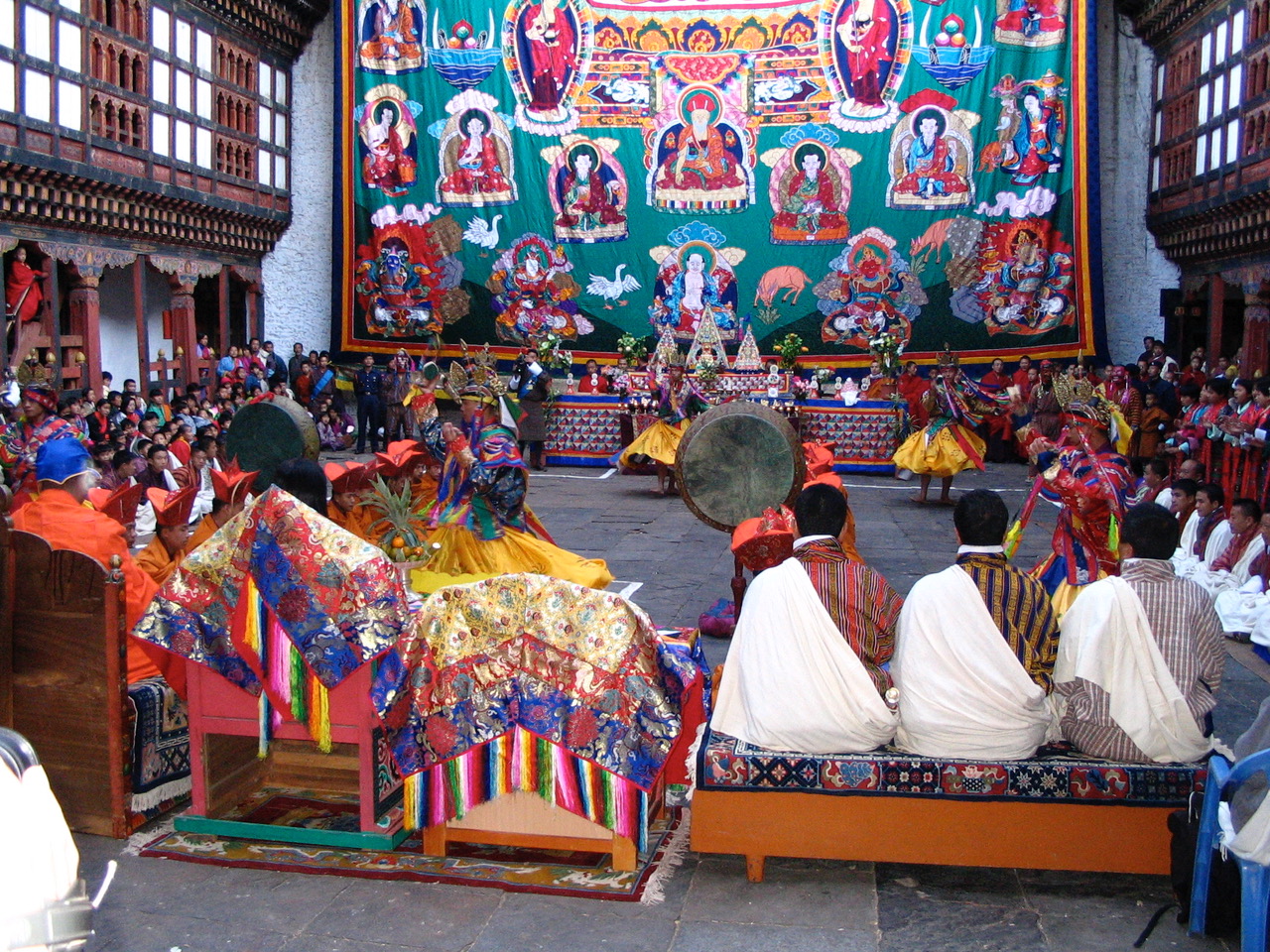
Asia Art Tours: Can you give us a brief introduction to how you came to work in Bhutan? What were your goals or research for your time in the country?
In the autumn of 1989, I received a letter from a professor who taught anthropology at the university where I was studying the subject. The letter stated that the Free University and the Agriculture University in Wageningen were looking for students who were willing to conduct a six-month research in a country called Bhutan. I was in the last year of my master’s studies, and I was required to undertake fieldwork in order to complete my course. I had always dreamed of conducting anthropological fieldwork in a place that was still ‘untouched’ by Westernization. Even in 1990, there are not many places in the world that allow a student to conduct research in such romantic settings, where people still lead lives unspoilt by globalization, Westernization, TV, Coca Cola and Mac Donald’s.
But Bhutan? I had never heard of it before!
I referred to the Encyclopaedia Britannica (in those days, I did not have access to the Internet) and found only a very brief description of Bhutan. Not much was written about the country. The encyclopaedia only stated that Bhutan is an absolute Buddhist monarchy situated in the Eastern Himalayas. I also learnt that the people there carry swords and that it is inhabited by bears.
This certainly did not tell me much about the place.
‘This is the ideal place!’ I thought, realising that I would like to go to Bhutan to conduct fieldwork.
I wrote to my professor, telling him that I would love to visit Bhutan. Shortly afterwards, he informed me that I was chosen as one of the members of the team that would be visiting Bhutan.
The team comprised three students of anthropology and three students of irrigation technology.
We were invited to join a programme organised by the Department of Agriculture of the Royal Government of Bhutan. The Bhutanese government needed information on how Bhutanese farmers grow crops, particularly rice, in order to facilitate the implementation of improvements in and for the agricultural sector and to seek possible ways to increase crop yield.
There was not much to prepare, because we did not know what to expect.
We assumed that Bhutan would look like Tibet, with towering mountains and snow-laden land. Although we had prepared ourselves to face all kinds of weather, we did not know what to expect with regard to food or accommodation. We had only heard that the meals and lodging provided would be very basic.
After a long journey by plane via New Delhi (India) and Kathmandu (Nepal), we arrived in Paro, Bhutan, in February 1990.
Our small plane landed on a short landing strip between lofty mountains. Paro International Airport was a small building, not much larger than a barn. The air was crisp and fresh and I felt as though I had landed in a fairy tale country. Together with the student irrigation I was send for six month to a village in North West Bhutan, a 12 hours hike from the road. The village was still set in middle ages, there was nothing from the 20th century. In that village I learned what it means to live a true sustainable live, because the people where 100% dependent on nature.
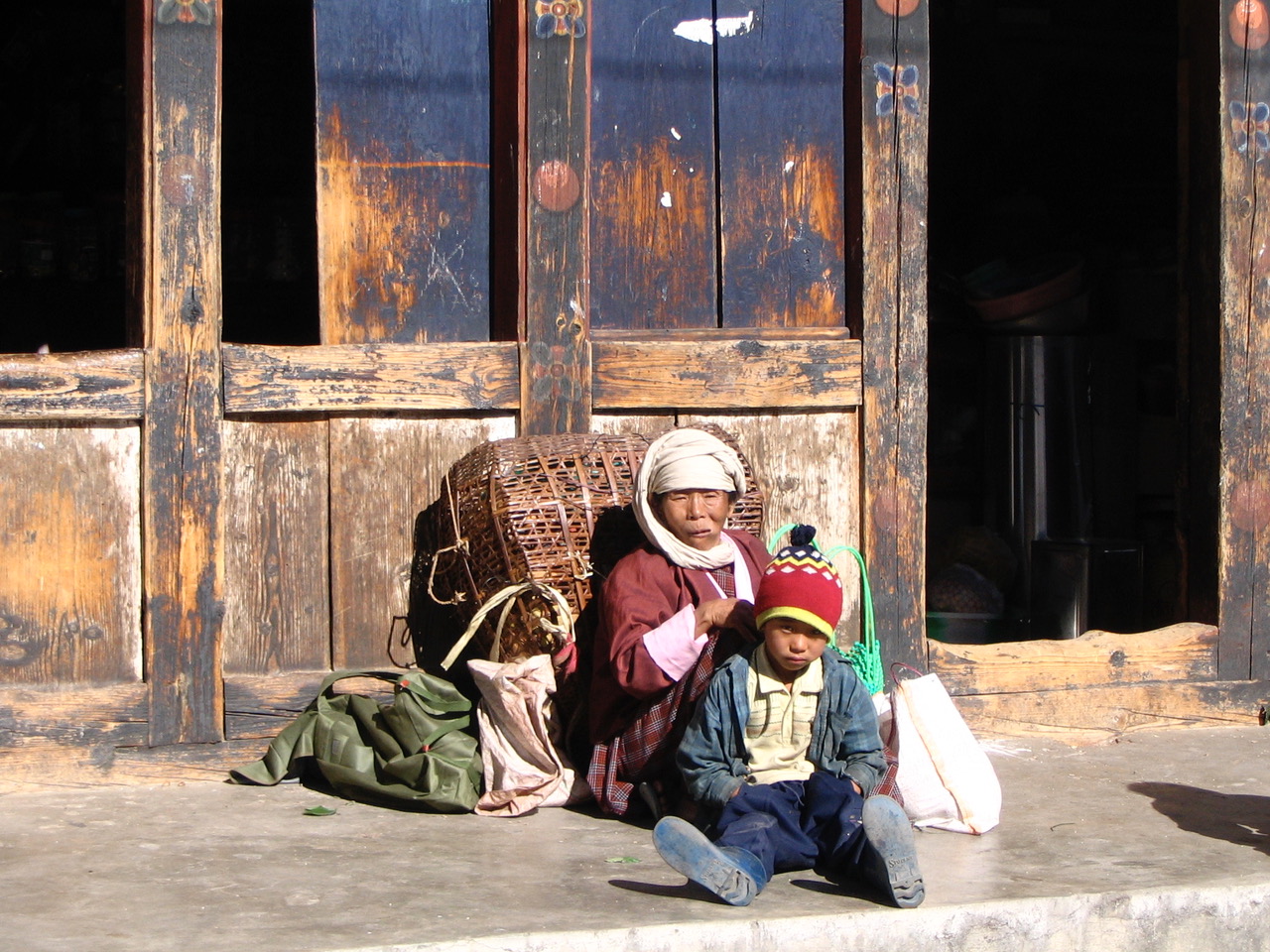
AAT: What impacts, both positive and negative, has travel had on Bhutan? Does one see similar problems in neighbouring countries as well?
In 1990 there was hardly any tourism in Bhutan, there was no infrastructure, no hotels. Only the brave pioneer would visit Bhutan. Tourism started to develop really after 2000. Policies were made and Bhutan choose for controlled tourism, meaning that everybody that wants to visit the country has to pay upfront USD 200 to 250 per day to be able to visit the country. This money would include food, a simple hotel, transportation and guide. USD 65 was tax and the other money went to the local agent who would book the hotels and the restaurants, he/she would also provide a guide and transportation. At first I liked this system because it would keep the budget travellers like back packers out. Also the money would go to the Bhutanese travel agents, hotels and restaurants. Later after I had set up my hotel and hotel vocational trainings institute for unemployed and marginalised youth that the system does not really work well. From 2008 onwards tourism in Bhutan started to boom. Before 2008 only a few thousand tourist would visit Bhutan, but after that the numbers increase to 100.000 plus. This was a result of the advice of the management firm McKinsey who was commissioned by Bhutan to examine its economy, and recommended in 2009 that the country should attract 250,000 tourists by 2014. The government decided this target was too ambitious, and instead wants to bring in 100,000 a year by the end of 2012. This target of 100.000 is met but the problem is that most tourists are all coming in the same months. Bhutan has only a few months per year as high season (March, April, October and November) the result is that there are way too many tourists are visiting the highlights of the country. So there are lines going up to the tiger nest and small old temples are full with tourists. So the untouched Shangri La that people are looking for is full with visitors from China, Thailand, Japan, Europa and the USA. Bhutan is a small country; there is only one road that connects the west of the country with the east. Sometimes there are traffic jams of tourist busses. Bhutan is selling itself as the last untouched Himalaya kingdom, the kingdom of happiness but it forgets that tourists see that there is so much poverty in the country (23% of the population lives under the poverty line) that there is pollution and that at night the capital Thimphu can be a dangerous place because of youth gangs that roam the streets and bar. This propaganda of picturing Bhutan as a paradise can work against Bhutan because it creates expectations that are not realistic.
As I said before, at first I was very supportive of the controlled tourism policy of Bhutan. But after I had set up a hotel and hotel school (a non for profit project to help the unemployed and marginalised youth) I learned that this system is not good for the hotels and the restaurants. Because the local agents receive the funds from the people who are booking the trips from outside, this agent can choose the hotels and the restaurants where his/her clients are going to stay and eat. This gives the agent a lot of power and he/she can demand very low prices for the hotel and the food. In our hotel school (we had a 12 room hotel and a restaurant in which our students trained of real guest and the revenue would help to cover the cost of the school) we learned that, if you wanted to have guest in our hotel and restaurant, we had to sell our rooms and meal for very low prices so we hardly made any money. This system also does not encourage improving the services and quality of the food in those restaurants, because they would not get more money for their services.
I spoke a lot to tourists in Bhutan and many were not happy with the system altogether; many guides are not very professional and not motivated. Especially tourists that travel alone have to spend the whole day with a guide, if you have a “bad” one, it can really spoil your very expensive trip. Because Bhutan wants to sell itself as a high-end destination: high value, low volume you also have to deliver a kind of value. This value is lacking behind on all levels. Mostly the food in the hotels is not of good quality, the rooms are basic and service not professional at all. Although Bhutan has fantastic handicrafts and textile, many Buddha statues and other curio that are sold in the shops are all from China or Kathmandu, but the shopkeepers sell it for 10 times the price as in Kathmandu. Bhutanese forget that many tourists are experienced travellers they know what the value is. The country would be better of to improve the local handicrafts, because they are unique and this is what people are looking for.
Bhutan is a very expensive destination; just to get there with Druk air or Bhutan airlines is expensive. If they would wave the USD 250 quota per day and just would charge USD 65 per day tax, I think this would boost the small economy of Bhutan. It would give restaurant and hotels a fair share of improving their services to attract more clients. Now because the travel agencies have agreements with hotels and restaurants the foods that they give the tourist are always buffets and it’s the same everywhere.
Bhutan has its unique tourism policy; I have not seen any country in the world that has this same system. Sadly this policy is implemented buy the ministry of tourism, these people are bureaucrats and do not really know what they are doing.
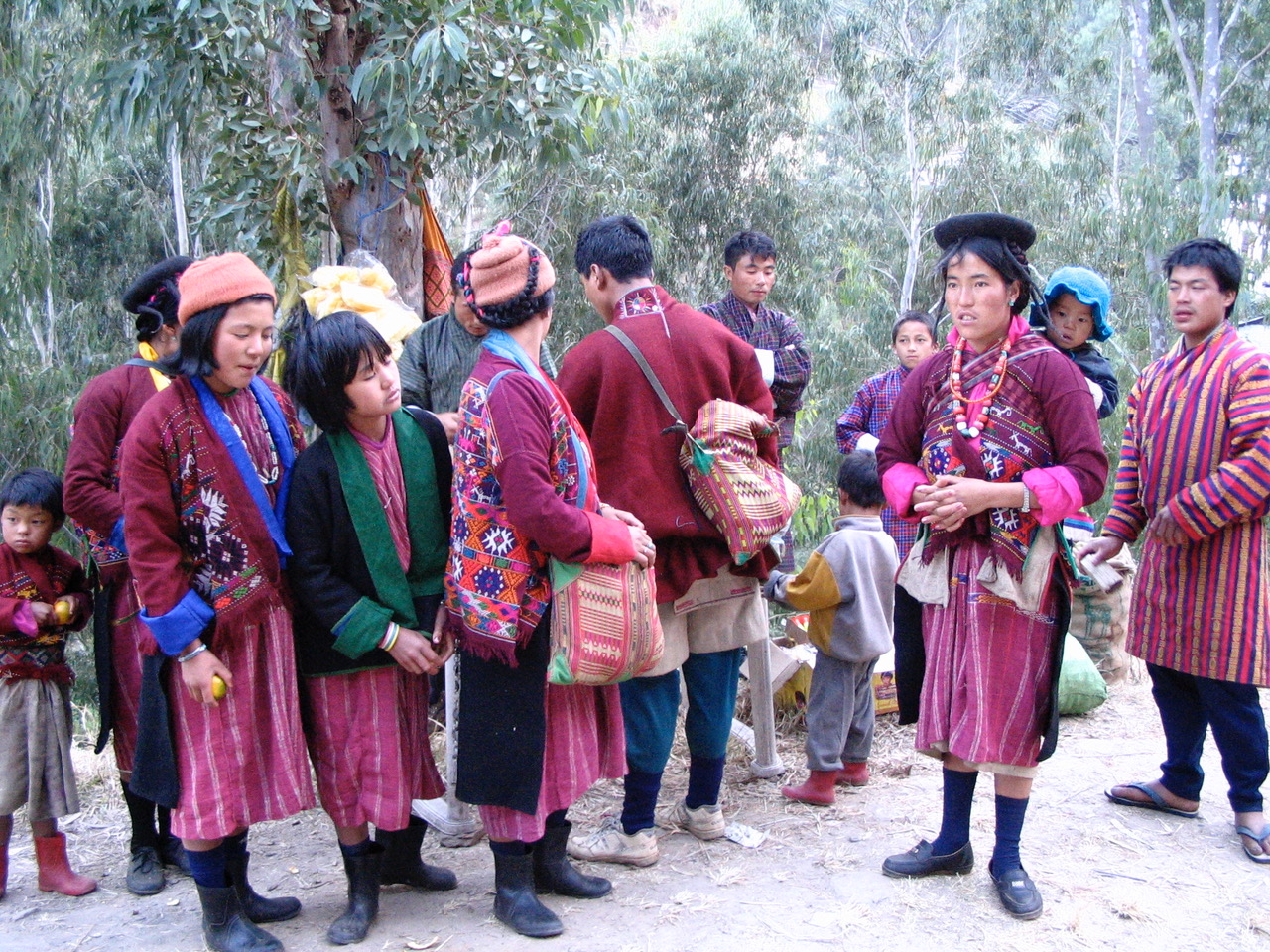
AAT: What changes do you think will need to happen in the travel industry, both in Bhutan and neighbouring countries, for travel to begin to have a positive impact? And are their choices we can make as travellers to help act as a catalyst for change?
Book trips with local travel agents, stay in family owned and run hotels, eat in local restaurants, avoid the “tourists traps” the so called “highlights, there are often much nicer alternatives where nobody goes. Offset your carbon footprint.
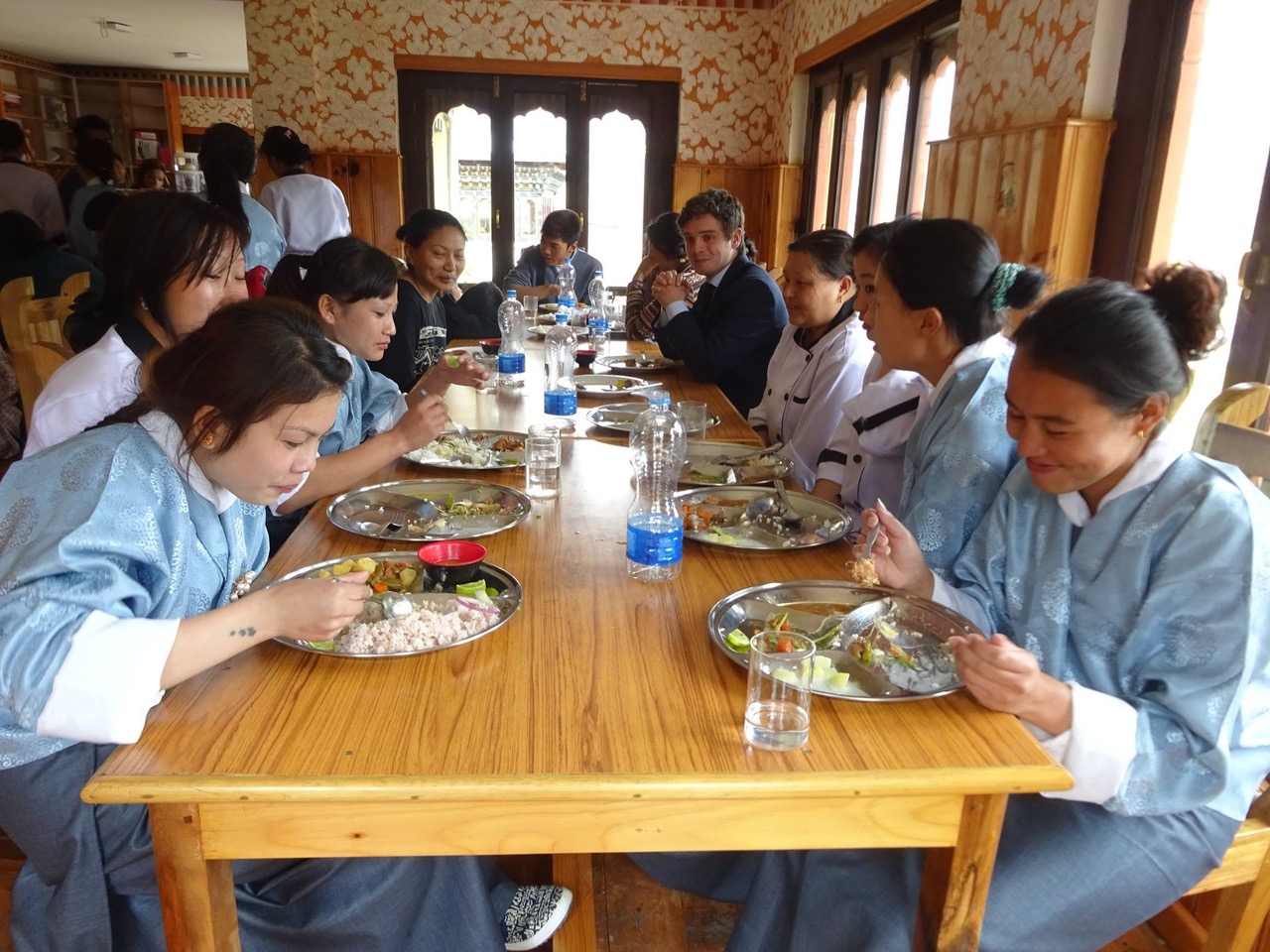 AAT: For social movements that begin in the West, what are productive ways to dialogue about these issues in countries where they are not established? In a similar vein, what conversations or movements are happening in the East that you believe the West should be listening or dialoguing with?
AAT: For social movements that begin in the West, what are productive ways to dialogue about these issues in countries where they are not established? In a similar vein, what conversations or movements are happening in the East that you believe the West should be listening or dialoguing with?
I was always an advocate to learn from the holistic worldview that many cultures in Asia and other Non Western societies still have. For example in Japan, Bhutan, India, Thailand and many more countries, we can learn a lot for the Asian philosophy of respecting nature, the elderly in our society and each other. Also to be able to do business in an Asian society a trusting relationship is very important; also if it takes a long time to establish this relationship. To me this is a beautiful quality that we have lost in the West.
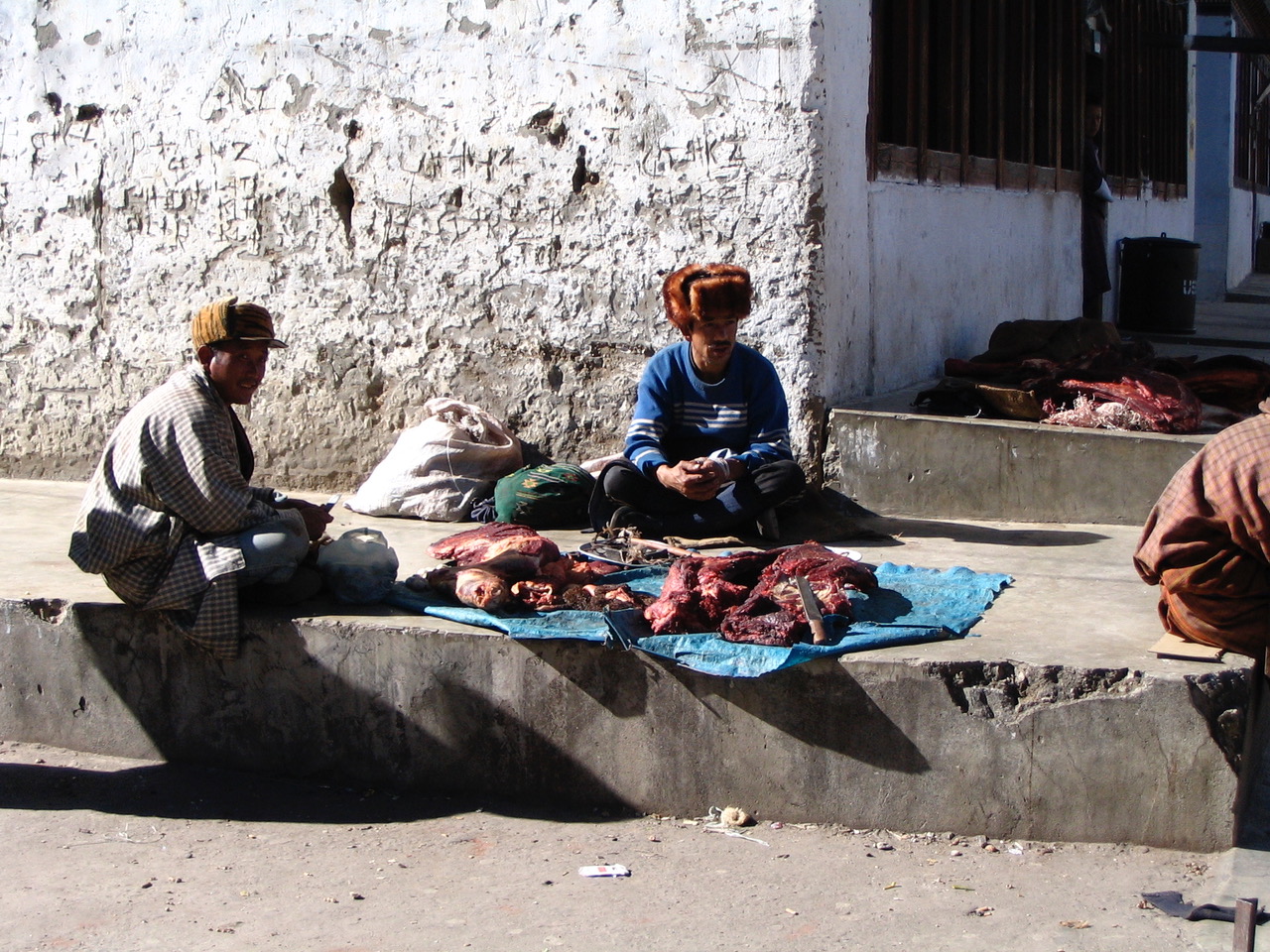 AAT: What are the problems or challenges you are trying to solve right now and in the future? Is there anyway travellers or interested individuals can help you? And finally, are their any artists or activists you would recommend to curious readers eager to learn more?
AAT: What are the problems or challenges you are trying to solve right now and in the future? Is there anyway travellers or interested individuals can help you? And finally, are their any artists or activists you would recommend to curious readers eager to learn more?
As a social entrepreneur I tried to set up an impact investment project in Bhutan. For 6 years I struggled to get the project off the ground: I wanted to realise a 5 star cultural authentic green hotel in central Bhutan. Next to this hotel my dream was to set up a 5 star vocational hotel school for unemployed and marginalised youth. The school I have set up through my foundation. This was a not profit project and it turned out this was much more easy to realise than the for-profit 5 star hotel. Although I had everything in place: good business plan, financial model, professional team, good local partners and the AA location land, it did not happen. Investors are not keen to invest in a frontier market and in a start up. This project would have been a good money maker and a cradle for development for the area. Because our concept would be to source all the food, and materials for the hotel locally. The hotel school did happen and it became a big success. The school ( www.bhitbhutan.org) is located in Paro. The school consist of a 12-room hotel, a professional restaurant and 70 students dorm. The student’s train on real guests and the revenue from the hotel and restaurant helps the institute. Also here, all the food and materials are sourced locally and this helps the community a lot. In almost all emerging markets this kind of school can benefit the community tremendously because it is not very expensive to set it up and it creates so many good opportunity for the many unemployed youth ( which is a global issue). But sadly investors are not interested and to start with a project like this as a non profit you need a seed investor who gives you the start up money otherwise its not happening. You have no idea how frustrated it is to see that so many of these initiatives are needed but no money is allocated to this kind of projects.
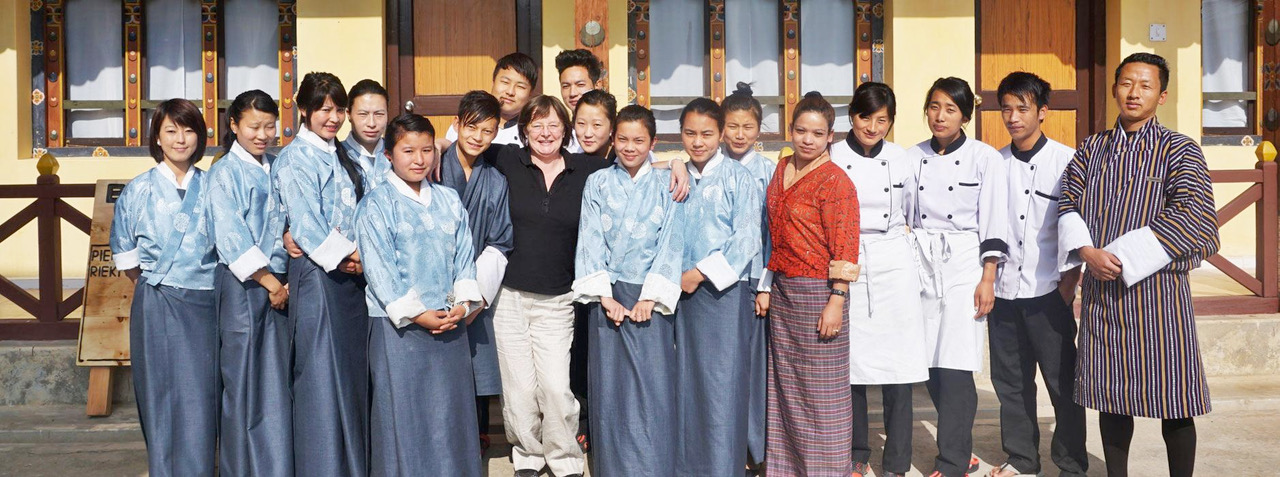 For your next ethical trip to Bhutan and South East Asia, or to learn more about Dr. Rieki Crins, contact Matt@asiaarttours.com today.
For your next ethical trip to Bhutan and South East Asia, or to learn more about Dr. Rieki Crins, contact Matt@asiaarttours.com today.
